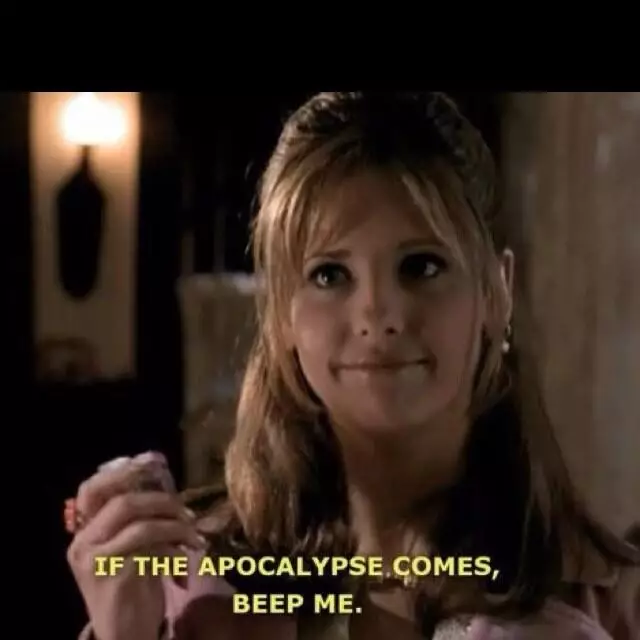Rumors of a Buffy the Vampire Slayer reboot have been buzzing around the internet, igniting excitement and nostalgia among fans of the iconic series. Originally aired from 1997 to 2003, “Buffy” became a cultural phenomenon that resonated with audiences due to its unique blend of supernatural elements and relatable themes. The news that the series is set for a revival, with Sarah Michelle Gellar potentially reprising her role as the formidable Buffy Summers, is both thrilling and loaded with implications for the legacy of this classic tale.
The first whispers of this reboot surfaced in an article by Deadline, highlighting that Hulu is reportedly preparing to give the project a green light. Adding to the excitement is the fact that Chloé Zhao, the Oscar-winning director known for her remarkable work on “Nomadland,” is set to helm the pilot. This combination of Gellar’s nostalgic tie to the character and Zhao’s renowned cinematic prowess raises the stakes for the reboot.
While some might wonder why now is the right time for a “Buffy” revival, Sarah Michelle Gellar’s perspective sheds light on the motivations behind the reboot. Up until recently, Gellar expressed skepticism about revisiting a role that was defined by captivating storytelling and groundbreaking representation. Nevertheless, she shifted her stance after observing successful reboots of shows like “Sex and the City” and “Dexter.” During an appearance on “The Drew Barrymore Show,” she reflected, “It’s funny, I always used to say no, because it’s in its bubble and it’s so perfect.” The new interest in the show’s revival stemmed from Gellar’s conversations with her mentor, Gail Berman, and the conversations eventually led to her meeting with Zhao, which sparked inspiring dialogues about the series’ legacy.
The bond Gellar developed with Zhao during their initial meeting, turning a casual coffee into a deep conversation that lasted for hours, is particularly noteworthy. These kinds of organic, enthusiastic discussions often lead to innovative storytelling and respectful handling of beloved narratives. Gellar emphasized that the process required nurturing the idea and ensuring that any new iteration does justice to the original while respecting the fans’ desires for a revival.
As Gellar herself said, “I have always listened to the fans and heard your desire to revisit ‘Buffy’ and her world.” This connection to the audience illustrates a key consideration for the creators: authenticity. A reboot that fails to address contemporary challenges and diverse narratives would risk alienating the very fans who sustained the show’s legacy over the years. Gellar’s commitment to ensuring the reboot is executed with care and precision reflects the responsibility of creators to honor the source material while also presenting fresh perspectives.
Moreover, Gellar’s heartfelt message on Instagram highlighted her appreciation for fans who have long petitioned for the show’s return. Her statement resonates deeply, providing reassurance that the creative team is motivated by love—not just for the franchise, but for the community built around it.
It isn’t just Gellar who has expressed excitement about the revival; former cast members like Charisma Carpenter, who portrayed Cordelia, and David Boreanaz, who played Angel, have shared their enthusiasm as well. Carpenter’s affirmation, “Could there be a more relevant time for such a story?! Long live the slayer,” is indicative of the cultural relevance the series continues to hold today. In a world grappling with various social issues, a “Buffy” comeback can serve as a means to explore contemporary themes of empowerment and identity.
The anticipation surrounding this revival is about much more than mere nostalgia; it encapsulates a longing for engaging storytelling that challenges societal norms. The potential for original cast members returning alongside Gellar sets the stage for dynamic interactions that celebrate continuity while ushering in a new era of fan engagement.
The impending revival of Buffy the Vampire Slayer speaks to the resilience of narratives that resonate across generations. As a new team of storytellers prepares to bring back a cherished and vital protagonist, it signals an opportunity for reflection on old themes and the evolution of new ones that mirror today’s society. Whether or not Gellar’s revival of Buffy transforms into a masterpiece rests on the assurance that respect for the original series will remain a guiding principle throughout the process.
With ongoing conversations and plans in place, the excitement enfolding this project invites hopeful anticipation. In just a few years, we may not just see the return of a beloved character but the revival of a vital cultural dialogue, reminding us that the power of storytelling can inspire and empower people across the globe once again.

